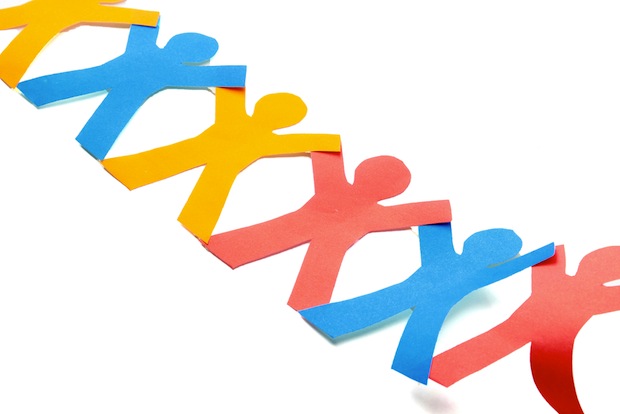As I walked down the courthouse steps this week, I felt like shouting out Dr. King’s famous words: “Free at last, free at last, thank God Almighty (I’m) free at last”. No, I was not freed from prison, nor had I won a major case in which we struck a blow for freedom. What happened? I was released from jury duty. It felt great!
Okay, I admit that as the hours went by over the two days I spent at the Bronx Courthouse on Grand Concourse, my mood had shifted from annoyance to resignation to appreciation of the opportunity to actually participate in a system in which I truly believe. So when I was released, I actually left not so much with joy, but with some real questions about that system.
Over and over again, prospective jurors are told that we have a vested interest in the process because we too would want to be judged by our peers were we the litigants. The Jury Room staff told us, the video they screened told us, the lawyers in voir dire told us, as did the two judges I sat before. But were these people among whom I sat, really my peers? Was I theirs? What makes someone a “peer”?
And yet, the longer I sat there, and the more people with whom I got to talk, the clearer it became to all of us, that we were peers in so many powerful ways.
I was seated in a pool of people, 90% of whom were not white, 50% of whom did not have great command of spoken English, and most of whom would be economically classified as working- or lower-class. The juror questionnaire we filled out asked about education completed, and after high school, there was a blank space for any people to whom that might apply. So, were we really peers? No… and yes.
In so many ways, we were not peers – real and meaningful ways, and in acknowledging these ways, we are neither racist nor elitist. Just ask the attorneys who chose not to seat me on a jury, despite my ability to serve and my willingness to do so. When they are “shopping” for jurors, they want people who more closely resemble both the litigants and the rest of the jurors. They want peers.
And yet, the longer I sat there, and the more people with whom I got to talk, the clearer it became to all of us, that we were peers in so many powerful ways. I am not talking about the obvious, kumbaya stuff – the, ultimately we all want to same things, we all live in the same borough stuff. That is all true, and not unimportant. But we were peers in plenty of other ways as well.
Pretty much everybody I met was both annoyed by, and appreciative of, the significance of jury duty. They were plenty sophisticated about what the attorneys were trying to ascertain during voir dire. They had quite refined understandings of justice and equity, and were almost reverential about their role in deciding them.
Bottom line, were I a litigant, I would be just fine being judged by the people I sat with. If that doesn’t make us peers, what does?
For more perspective, be sure to read Irwin Kula’s post on his experience being called for jury duty, Jury Duty or Joy Duty. – “I felt a flood of feelings – a mixture of relief that I could get back to work, a sense of loss that I didn’t get to actually serve on a jury, and a surge of appreciation as I realized I hadn’t been summoned to serve but invited to actually be a citizen. There is joy in obligation…” READ MORE

Listed for many years in Newsweek as one of America’s “50 Most Influential Rabbis” and recognized as one of our nation’s leading “Preachers and Teachers,” by Beliefnet.com, Rabbi Brad Hirschfield serves as the President of Clal–The National Jewish Center for Learning and Leadership, a training institute, think tank, and resource center nurturing religious and intellectual pluralism within the Jewish community, and the wider world, preparing people to meet the biggest challenges we face in our increasingly polarized world.
An ordained Orthodox rabbi who studied for his PhD and taught at The Jewish Theological Seminary, he has also taught the University of Pennsylvania, where he directs an ongoing seminar, and American Jewish University. Rabbi Brad regularly teaches and consults for the US Army and United States Department of Defense, religious organizations — Jewish and Christian — including United Seminary (Methodist), Yeshivat Chovevei Torah (Modern Orthodox) Luther Seminary (Lutheran), and The Jewish Theological Seminary (Conservative) — civic organizations including No Labels, Odyssey Impact, and The Aspen Institute, numerous Jewish Federations, and a variety of communal and family foundations.
Hirschfield is the author and editor of numerous books, including You Don’t Have To Be Wrong For Me To Be Right: Finding Faith Without Fanaticism, writes a column for Religion News Service, and appears regularly on TV and radio in outlets ranging from The Washington Post to Fox News Channel. He is also the founder of the Stand and See Fellowship, which brings hundreds of Christian religious leaders to Israel, preparing them to address the increasing polarization around Middle East issues — and really all currently polarizing issues at home and abroad — with six words, “It’s more complicated than we know.”


Comments are closed.